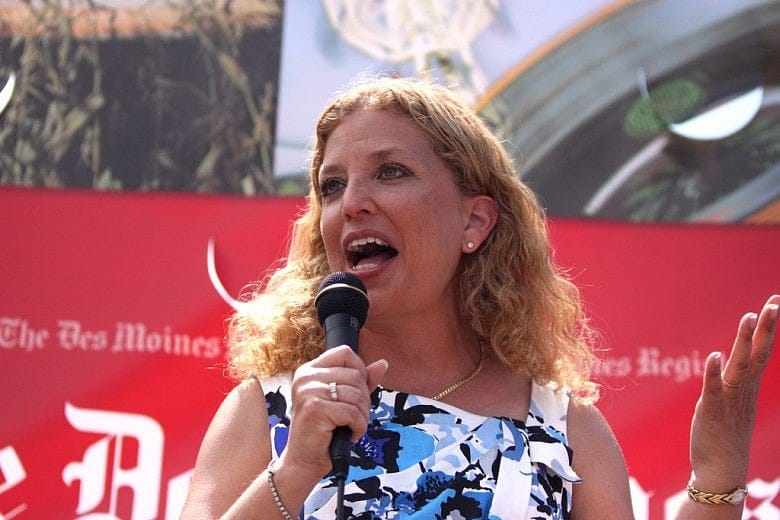Wasserman Schultz and the Democrats’ debate problem

U.S Rep. Debbie Wasserman Schultz, D-FLA, the chairwoman of the Democratic National Committee, said this week that not only will the DNC hold just six presidential debates, any candidates participating in outside debates will be penalized by the party.
"I've got a party I have to run," Wasserman Schultz said when pressed Thursday during a breakfast sponsored by the Christian Science Monitor on the fact that several Democratic candidates have asked for more debates.

